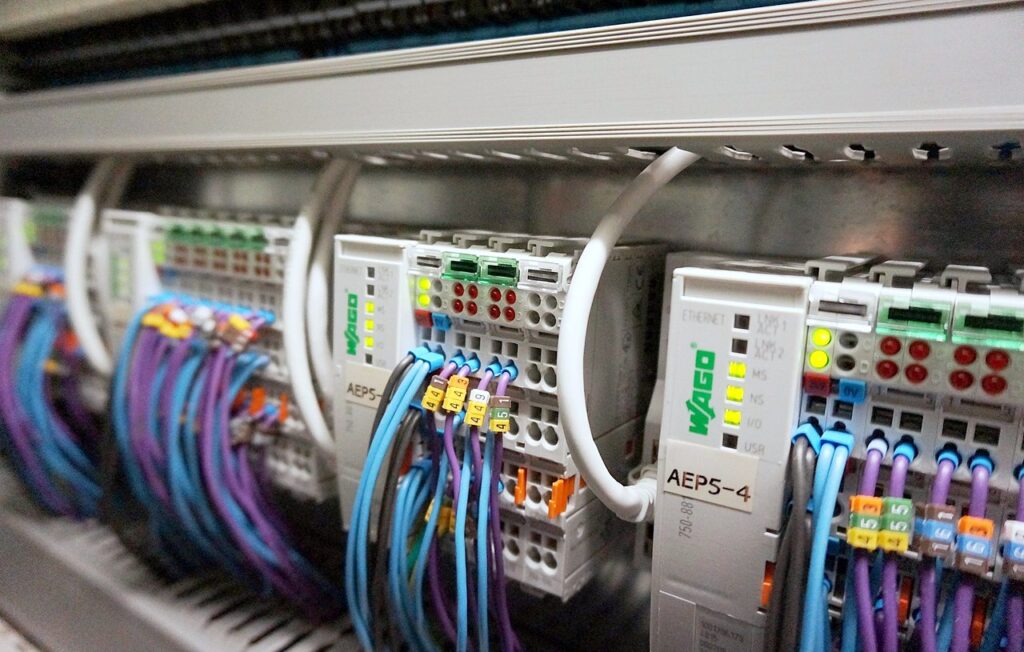Programmable Logic Controllers (PLCs) or PLC Training in Jammu and Kashmir is the backbone of modern industrial automation. They are used to control machinery, automate processes, and enhance operational efficiency across various industries. As the demand for skilled professionals in automation technology grows, PLC training has become increasingly essential. Jammu & Kashmir, a region known for its picturesque landscapes and cultural heritage, is now making strides in technical education by offering specialized PLC training programs. This article explores the significance, opportunities, and future prospects of PLC training in Jammu and Kashmir.

The Importance of PLC Training
PLC systems are integral to the automation industry, serving as the brains behind complex processes in manufacturing, energy, water treatment, and more. Training in PLC programming and operation equips individuals with the skills needed to design, implement, and maintain these systems. The benefits of PLC training are manifold:
-
Enhanced Career Opportunities: As industries worldwide embrace

The Core Systems iso certified Plc Automation company automation, the demand for PLC professionals continues to rise. Trained individuals can pursue careers as PLC programmers, automation engineers, maintenance technicians, and system integrators.
-
Improved Operational Efficiency: Companies seek professionals who can optimize their automation systems, leading to increased productivity, reduced downtime, and cost savings.
-
Technological Proficiency: PLC training imparts knowledge of cutting-edge technologies, preparing individuals to work with advanced systems and stay updated with industry trends.
-
Safety and Reliability: Properly trained PLC professionals ensure the safe and reliable operation of automated systems, minimizing risks and enhancing workplace safety.
PLC Training in Jammu and Kashmir: Current Scenario

Jammu & Kashmir, a region traditionally known for its natural beauty and handicrafts, is now emerging as a hub for technical education. The local government, along with educational institutions and private organizations, is investing in skill development programs to meet the growing demand for technical expertise. Several initiatives have been launched to provide comprehensive PLC training in the Jammu and Kashmir region.
- The Core Systems has been providing Plc automation courses to Candidates from various universities and colleges in Jammu and Kashmir Since 2005. The CoreSystems provide state-of-the-art industrial training in PLC automation and Scada on Software and Hardware lab Practicals that train candidates on various aspects of Automation in Factories and Manufacturing Industries.
Key Components of PLC Training
Effective programs of PLC training in Jammu and Kashmir cover various aspects of automation technology. The curriculum is designed to provide a holistic understanding of PLC systems, ensuring that students are well-prepared for real-world applications. Key components of PLC training include:
-
Introduction to PLCs: This module covers the basics of PLCs, including their history, components, and applications. Students learn about the different types of PLCs and their role in industrial automation.
-
PLC Programming: A significant portion of the training focuses on programming PLCs using ladder logic, function block diagrams, and structured text. Students gain hands-on experience in writing, testing, and debugging PLC programs.
-
Hardware and Software Integration: Students learn to interface PLCs with various sensors, actuators, and human-machine interfaces (HMIs). This module emphasizes the integration of hardware and software to create efficient automation systems.
-
Troubleshooting and Maintenance: Effective troubleshooting and maintenance are critical to the smooth operation of PLC systems. Students are trained to diagnose and resolve common issues, ensuring minimal downtime and optimal performance.
-
Advanced Topics: Advanced modules cover topics such as networking, communication protocols, and data acquisition. Students explore the integration of PLCs with other control systems and the use of advanced programming techniques.
Opportunities and Challenges
The growth of PLC training in Jammu and Kashmir presents numerous opportunities for students and professionals in the region. However, it also comes with its own set of challenges.
Opportunities
-
Employment Prospects: The automation industry offers a wide range of career opportunities for PLC-trained professionals. Graduates can find employment in manufacturing, energy, pharmaceuticals, and more.
-
Entrepreneurial Ventures: With the knowledge gained from PLC training in Jammu and Kashmir region individuals can start their own automation service businesses, offering installation, maintenance, and consulting services to local industries.
-
Technological Advancement: PLC training fosters a culture of innovation and technological advancement in the region. As more individuals gain expertise in automation, they contribute to the development of smarter, more efficient industrial processes.
-
Economic Growth: The growth of the automation sector in Jammu & Kashmir can stimulate economic development by attracting investments and creating job opportunities.
Challenges
-
Infrastructure and Resources: Developing state-of-the-art training facilities and acquiring the necessary equipment can be a challenge. Continuous investment is required to maintain high training standards.
-
Quality of Training: Ensuring the quality and relevance of training programs is crucial. Trainers must be highly skilled and updated with the latest industry practices to provide effective education.
-
Awareness and Outreach: Increasing awareness about the benefits of PLC training in Jammu and Kashmir among students and industry stakeholders is essential. Effective outreach programs can encourage more individuals to pursue careers in automation.
Future Prospects
The future of PLC training in Jammu and Kashmir looks promising. As the region continues to invest in technical education and skill development, the demand for automation professionals is expected to grow. Key trends and prospects include:
-
Integration with Industry 4.0: The advent of Industry 4.0 technologies, such as the Internet of Things (IoT) and artificial intelligence (AI), will drive the need for advanced PLC training. Students will need to learn about the integration of PLCs with smart devices and data analytics platforms.
-
Expansion of Training Programs: Educational institutions and training centers are likely to expand their offerings, introducing specialized courses and certifications in emerging areas of automation technology.
-
Collaboration with Industries: Strengthening partnerships between educational institutions and industries can enhance the relevance of training programs. Industry collaboration can provide students with real-world experience and better employment opportunities.
-
Government Support: Continued support from the government in the form of funding, policy initiatives, and infrastructure development will be crucial to the sustained growth of PLC training in the Jammu and Kashmir area.
Conclusion
PLC training in Jammu and Kashmir is paving the way for a new era of industrial automation in the region. By equipping individuals with the skills needed to thrive in the automation industry, these training programs are driving economic growth, technological advancement, and career development. As the region embraces the future of automation, the investment in PLC training will undoubtedly yield significant dividends, positioning PLC Training in Jammu and Kashmir as a hub for skilled automation professionals.
The Core Systems is a leading industrial automation Company and PLC training provider, known for its certified expertise, hands-on learning approach, and strong industry connections across Chandigarh, Punjab, and Jammu.
5/5 - (19 votes)



 WhatsApp us
WhatsApp us